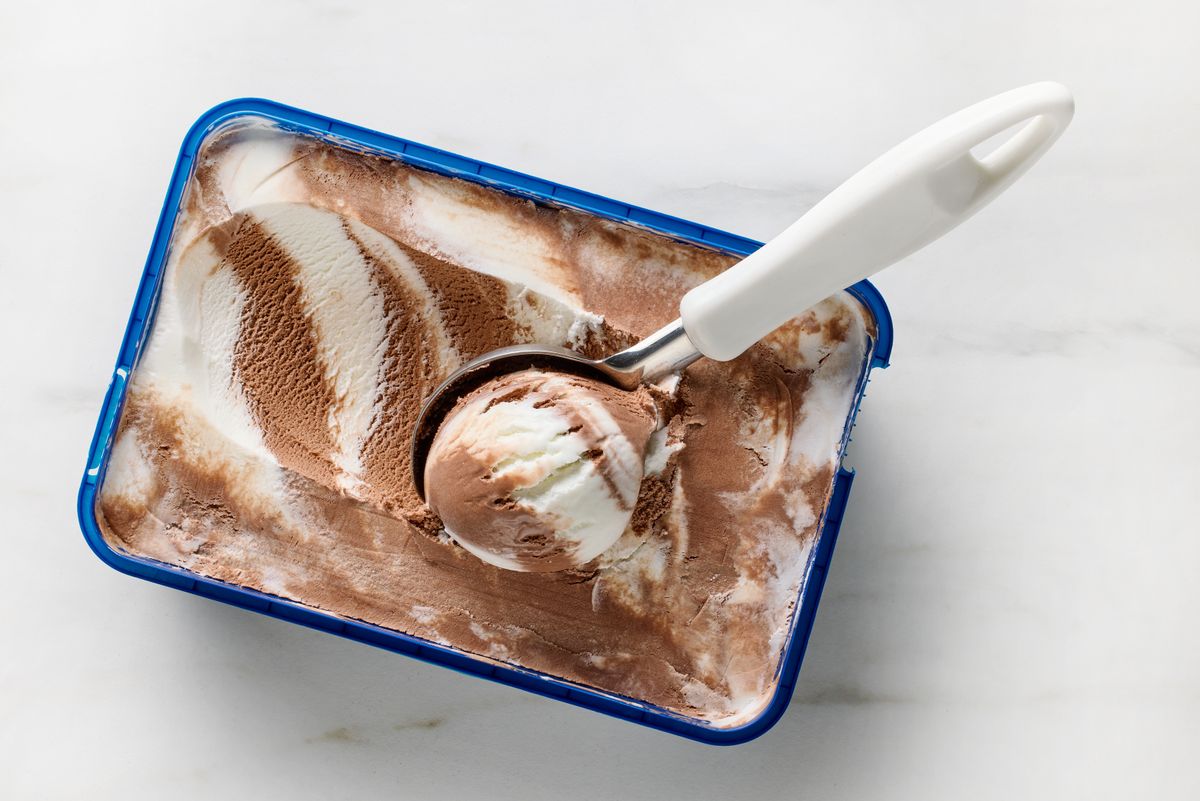Indulging in a single scoop of ice cream has a remarkable ability to ignite a smile on our faces. Whether it's the delightful sweetness, the velvety texture, or the nostalgic charm, this frozen dessert never fails to captivate our taste buds. Across generations, ice cream remains a beloved treat, composed of cream, sugar, flavorings, and enticing mix-ins, that has gracefully withstood the test of time. For some, the allure of enjoying a cup or cone of this frozen delight every day is simply irresistible.
If you happen to be an ardent ice cream enthusiast who wonders about the consequences of savoring a scoop (or two!) on a daily basis, consider yourself fortunate! This article delves deep into the potential effects you may encounter if ice cream becomes a frequent indulgence in your life. Brace yourself as we uncover the joys and pitfalls of daily ice cream consumption.
1) Potential Improvement in Fertility

Struggling with ovulatory infertility can be disheartening, but research suggests that a high-fat dairy intake, including ice cream, may offer some benefits. A study by Harvard University epidemiologists discovered that individuals dealing with ovulatory infertility might experience better fertility outcomes by incorporating high-fat dairy into their diet. Surprisingly, a serving of ice cream can be considered a high-fat dairy choice, along with whole milk or cheese.
2) Increased Risk of Cavities

Indulging in ice cream without proper oral care can lead to an increased risk of developing cavities. Sugar-containing foods, commonly found in many ice creams, promote tooth decay. When sugar lingers on the teeth without brushing afterward, it provides a breeding ground for harmful bacteria. It's important to maintain good oral hygiene practices, such as brushing your teeth after consuming ice cream, or opt for sugar-free alternatives to mitigate this risk.
3) Sleep Disruptions

While some people believe that enjoying a bowl of ice cream before bed helps them sleep better, scientific evidence suggests otherwise. A study published in the Journal of Sleep Medicine found that consuming low-fiber, high-saturated fat foods, like ice cream, can lead to lighter sleep and more nighttime arousals. Furthermore, consuming excess sugar, particularly close to bedtime, can disrupt the quality of deep, restorative sleep.
4) Weight Gain Potential

Ice cream tends to be calorie-dense, which can hinder weight management efforts if consumed in excess. Regularly exceeding your daily calorie needs by indulging in ice cream may contribute to weight gain over time. Monitoring portion sizes and considering the overall calorie intake from ice cream, along with the rest of your diet, is crucial if weight maintenance or loss is a goal.
5) Potential Risk of Non-Alcoholic Fatty Liver Disease

Certain ice creams are sweetened with fructose, and consuming such fructose-containing foods daily may increase the risk of developing non-alcoholic fatty liver disease. This condition involves the accumulation of excess fat in the liver, which can have detrimental effects on its function and overall health. Being mindful of fructose intake, including that from ice cream, can help mitigate this risk.
6) Support for Healthy Bones

Ice cream does provide some nutritional benefits, particularly in terms of bone health. A half-cup serving of ice cream contains over 80 milligrams of calcium, a vital nutrient for maintaining strong bones. Additionally, ice cream offers magnesium and zinc, which play a role in supporting bone health and integrity.
7) Negative Impact on Heart Health

Excessive consumption of added sugars, commonly present in ice cream, can have adverse effects on heart health. The American Heart Association advises limiting daily added sugar intake to no more than 6% of total calories to reduce the risk of cardiovascular issues. Regularly indulging in ice cream, which can contribute significant amounts of added sugar, may increase the likelihood of heart health complications over time.
8) Possible Bloating and Digestive Issues

Individuals with lactose intolerance may experience gastrointestinal discomfort after consuming ice cream due to its lactose content. Symptoms such as stomach pain, bloating, diarrhea, or other digestive issues can arise. Fortunately, there are now numerous dairy-free ice cream alternatives available for those who cannot tolerate lactose, providing a solution to mitigate these digestive issues.

